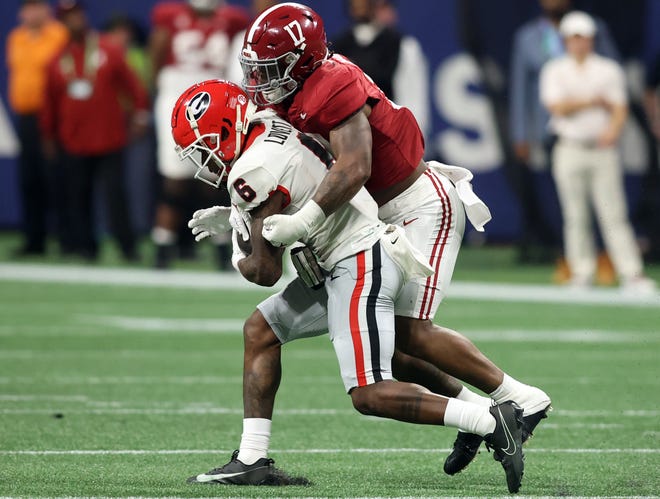With the advent of the 12-team College Football Playoff format, the historic rivalry between Alabama and Georgia takes on a new dimension, marking a shift from its previous high-stakes winner-takes-all scenario.

Over the past six years, these two programs have clashed in games that decided national titles and SEC championships, becoming fixtures in some of the sport’s most defining moments. Yet, the sense of immediate consequence has diminished this season due to the broader playoff implications.
No longer does one defeat eliminate a team from contention; instead, both Alabama and Georgia are expected to remain in the playoff picture regardless of Saturday’s result. This development blunts the tension that has defined their encounters, turning what was once a showdown with title hopes on the line into a contest that might merely shape playoff seeding.
For Alabama’s new head coach, Kalen DeBoer, however, Saturday’s game represents a different kind of crossroads. After taking over from Nick Saban, the architect of Alabama’s unprecedented dynasty, DeBoer has been tasked with proving that the Crimson Tide’s excellence can be sustained under new leadership. The early returns have been promising — Alabama has remained competitive — but a win against the reigning national champions would provide a much-needed signature victory.
The current stakes, therefore, are split. For Georgia, led by Kirby Smart, the primary goal is to maintain momentum and cement its status as the favorite to win a third consecutive national title. For Alabama, it’s about reasserting dominance, silencing doubters, and providing DeBoer with a milestone that could define the early part of his tenure.
Nevertheless, the rivalry’s significance is undoubtedly changing. The expanded playoff format reduces the zero-sum nature of these regular-season matchups. No longer is the game a make-or-break affair, and fans must adjust to the reality that both teams can afford a loss now and still make a deep postseason run.
What does this mean for college football? In the short term, the stakes of marquee regular-season games are lessened, even if only slightly. In the long term, it may lead to a broader reconsideration of how we view the regular season altogether. The drama of elimination is gone, replaced by the anticipation of potential rematches in a longer, more grueling postseason gauntlet.
While Saturday’s showdown in Tuscaloosa may feel less decisive, it still represents a key chapter in the evolving rivalry between two of college football’s premier programs. As for DeBoer, Smart, and the players on both sides, the outcome will likely resonate long after the final whistle, with the shadow of Nick Saban’s legacy casting a subtle but unmistakable weight over the field.

In a sport defined by the immediacy of its consequences, Georgia and Alabama’s first regular-season clash since 2020 might “mean less,” but for those at the heart of the rivalry, the stakes remain personal and profound.



